As veterinary medicine expands, so too does the number of treatment options available for use in feline patients. The selection is impressive—arthritis injections, radiation therapy, CBD oil, acupuncture, and oral (not injectable!) insulin.
However, despite these advances, there are nine medications that we believe are still the cornerstone of feline medicine. So, what are they, and how do they work?
The 9 Most Common Cat Medications
1. (Non-steroidal anti-inflammatories) NSAIDs
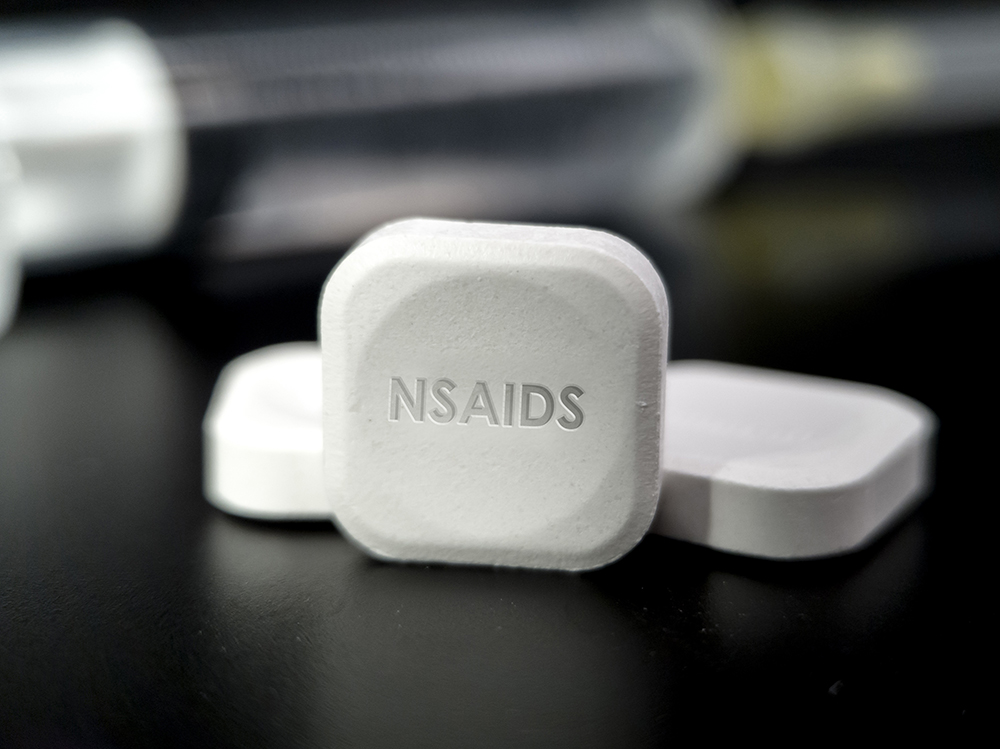
NSAID is an abbreviation for “non-steroidal anti-inflammatory”. These are the most common types of painkillers used for cats. They are the same class of medication as ibuprofen, commonly used in people. Many different types of NSAIDs (and many brands) are available. They all work via the same mechanism.
The active ingredient, when absorbed, blocks some of the molecules that drive the inflammation pathway in the body. Inflammation is one of the main causes of acute pain, so reducing inflammation will reduce pain. NSAIDs are used post-operatively for most surgeries, as well as for wounds, arthritis, and injuries.
2. Antibiotics

Antibiotics are used to treat infections and diseases caused by bacteria. There are a huge number of different antibiotics available in cats; some are licensed for use in cats, and others are used off-label.
Most are tablets, but liquid suspension options are available. Long-acting injections are also available but should be used by vets judiciously. Antibiotics are indicated for some wounds and catfight injuries, as well as urinary and respiratory infections.
3. Gabapentin

Gabapentin was originally designed for people to treat partial seizures and nerve pain. Somewhere along the line, vets realized that it was highly effective in cats. Gabapentin can be used as a pain-relief medication; it is best for chronic pain and nerve pain, as opposed to acute injuries, where NSAIDs are likely a better option.
Gabapentin also makes cats slightly drowsy. For this reason, it is often used to reduce stress in highly anxious cats or to facilitate blood collection in cats that are fractious at the vet clinic.
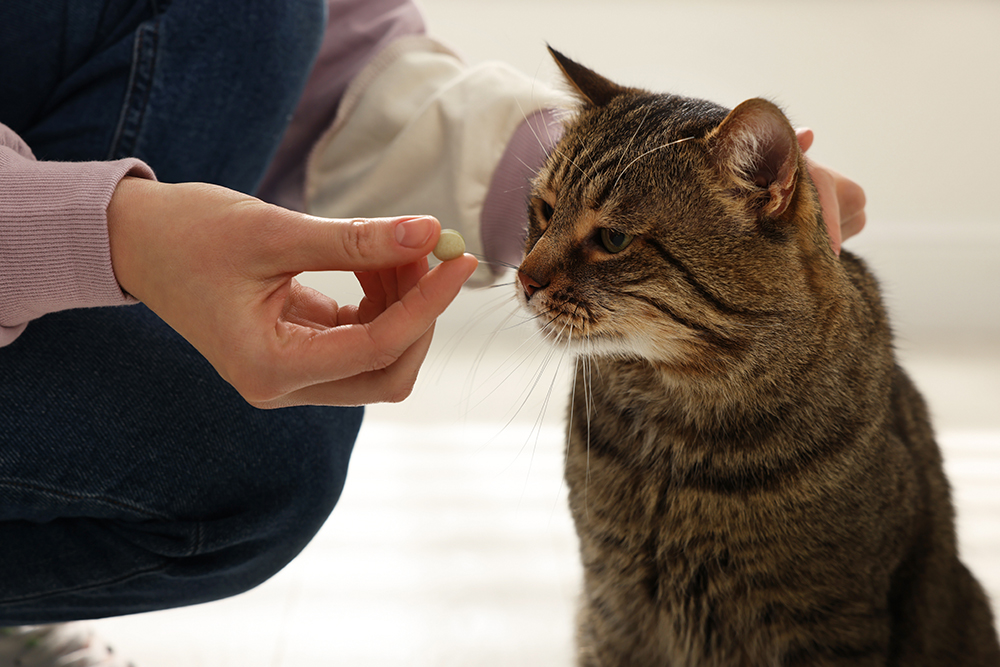
You may have heard of “cat flu”. This is a very common viral disease of domestic cats, particularly in shelter settings and multi-cat households. The disease is called cat flu because the signs are similar to the flu that affects people—snotty nose, congestion, sneezing, and weepy eyes.
However, whereas human flu is caused by the influenza virus, cat flu is actually caused by feline herpesvirus. Some cats may be treated with an antiviral medication called famciclovir.
5. Anti-parasitics
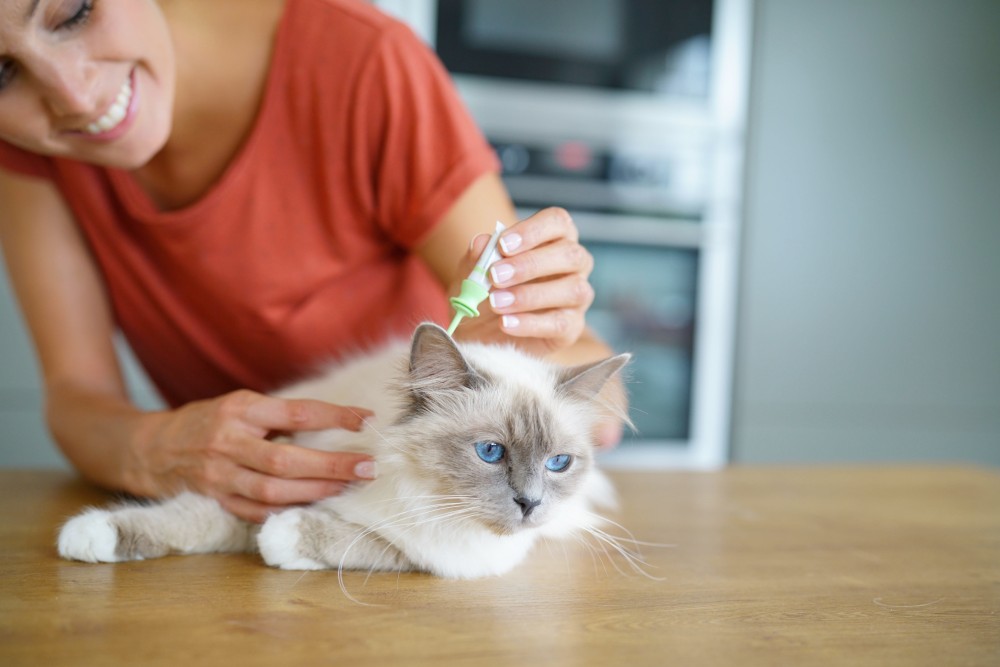
From a young age, most cats should be receiving some form of anti-parasite medication. These medications are available over the counter and protect cats against both internal and external parasites: worms, heartworm, fleas, ticks, and mites. In some parts of the world, ticks and heartworm can be fatal.
Most feline anti-parasite medications are available as a spot-on solution that is applied to the skin on the back (to avoid the hassle of giving a tablet). A large number of brands are on the market, and we recommend discussing what’s best for your cat with a veterinarian.
If you need to speak with a vet but can't get to one, head over to PangoVet. It's an online service where you can talk to a vet online and get the advice you need for your pet — all at an affordable price!

6. Laxatives

Laxatives are used in cats to reduce the ill effects of grooming and hairballs, as well as to treat constipation. Most of these laxatives work by softening the stool, aiding the passage of hair. Some work by preventing the accumulation of hair into clumps.
The use of laxatives should always be discussed with a veterinarian, as many cats experiencing problems with hairballs have an underlying problem that allows the hairballs to form in the first place.
7. Anti-Nausea Medications
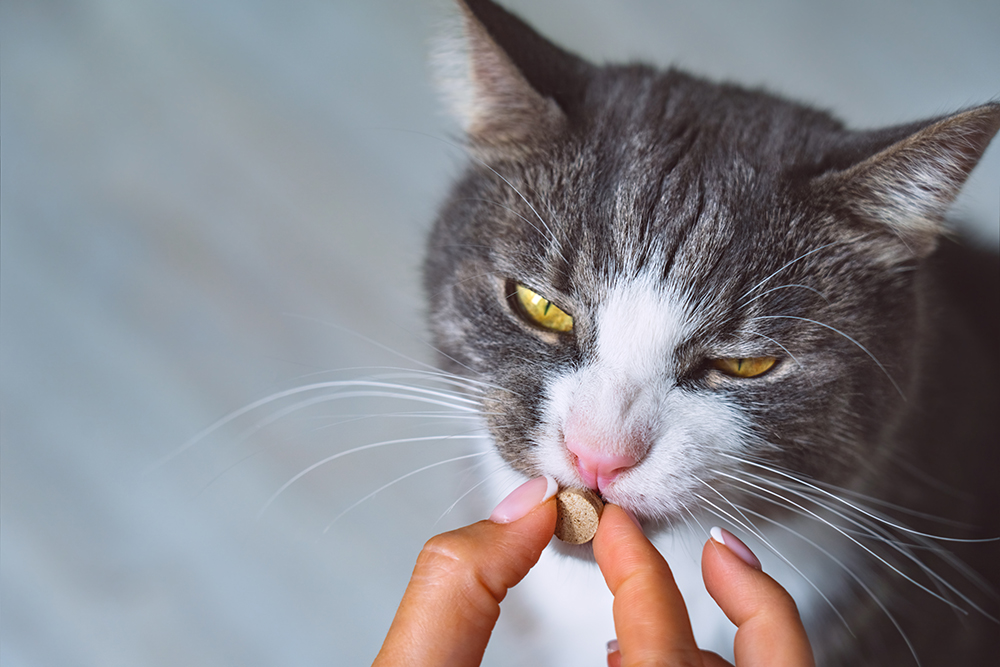
Nausea is common in cats, even though it can be hard for the layperson to detect. The causes of nausea range from diet indiscretion or gut upset to cancer and pain. Both oral (tablet) and injectable forms of anti-nausea medication exist.
Some stop the body from vomiting, while others address the nausea itself; anyone who has experienced nausea will appreciate how awful this feeling is!
8. Frusemide
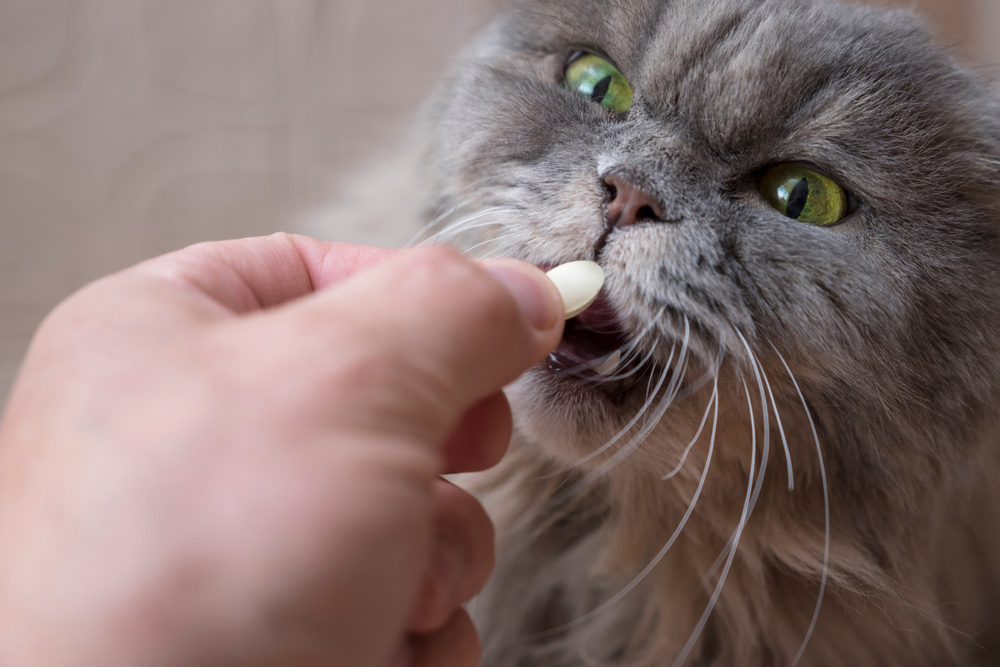
Frusemide is the mainstay of treatment for cats that are in congestive heart failure. This is the term used when heart disease prevents the adequate pumping of the heart to the body. As a result, blood (or more specifically, fluid) starts to seep out into the lungs and other parts of the body.
Frusemide is used to get rid of this fluid and reduce the strain on the heart. It is a diuretic medication, meaning the fluid is lost in urine. Other heart medications are normally required in conjunction with frusemide.
9. Anti-thyroid Medications

Did you know that roughly 10% of cats over the age of 10 years are affected by hyperthyroidism? This is a disease in which the thyroid gland, which sits in the throat, grows too large and produces excessive amounts of thyroid hormone. The signs of hyperthyroidism are classic—weight loss despite a ravenous appetite, behavioral changes, and vocalization.
Unfortunately, hyperthyroidism can affect other organs, including the eyes, heart, and kidneys. While some cats are treated with radioactive iodine therapy or even surgical removal of the thyroid gland, many owners choose to medicate their cats daily. Methimazole and carbimazole and the common products; both are highly safe and effective.

Conclusion
Thankfully, you don’t need to feel daunted or confused by veterinary medications—that’s what the vet is for! However, we believe it is important for cat owners to understand what medications their cat has been prescribed.
If you think your cat needs one of the above medications, or if you want to know more, don’t hesitate to reach out to your local vet clinic.
See Also:
- Can You Give Cats Human Pain Medication? Our Vet Explains
- Can I Get a Prescription for My Cat Online? Vet-Approved Facts & FAQ
Featured Image Credit: New Africa, Shutterstock
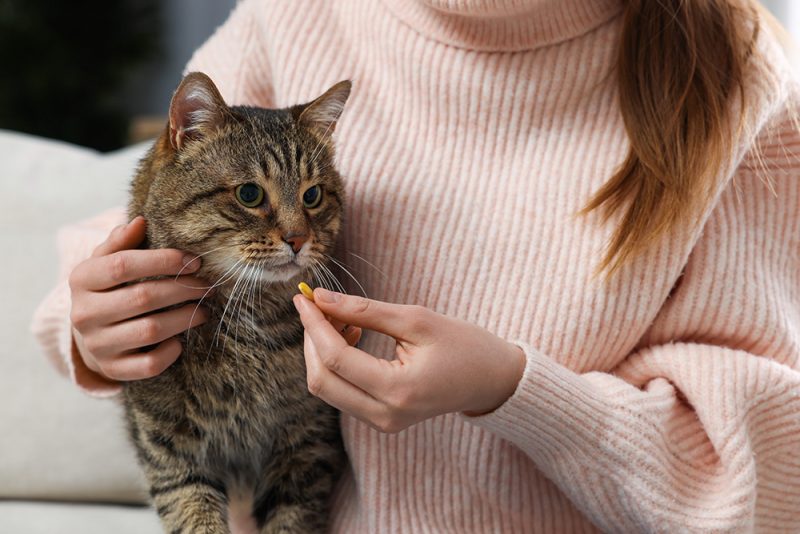

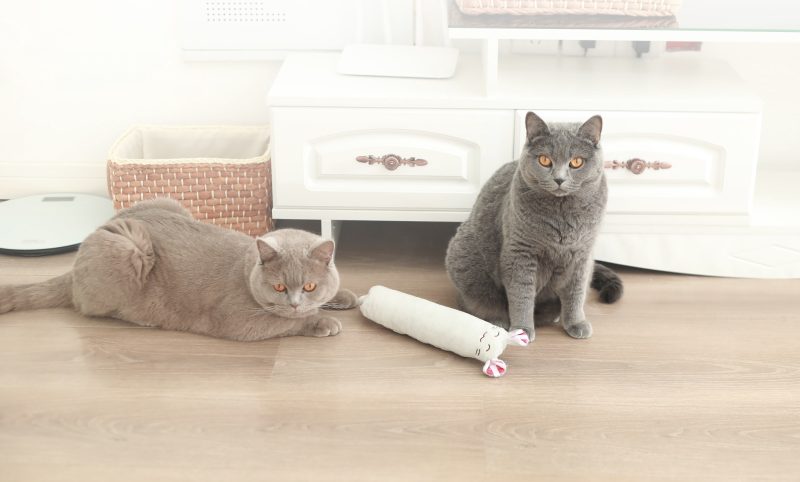
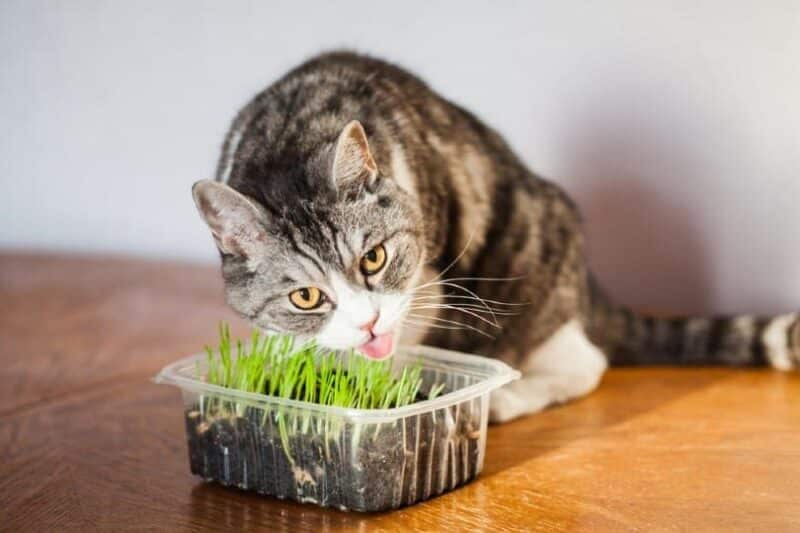

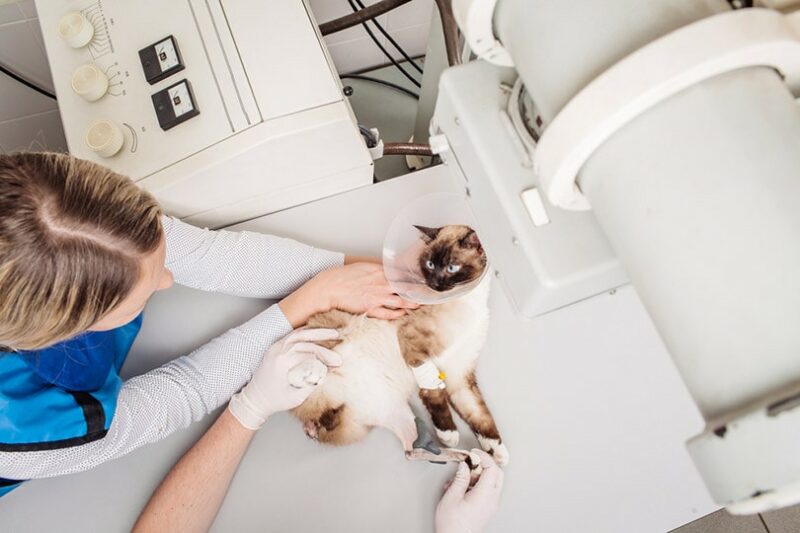
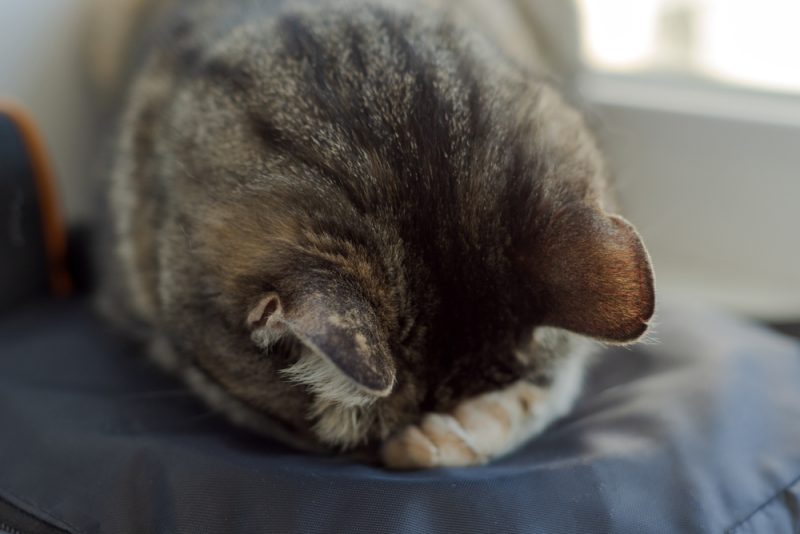


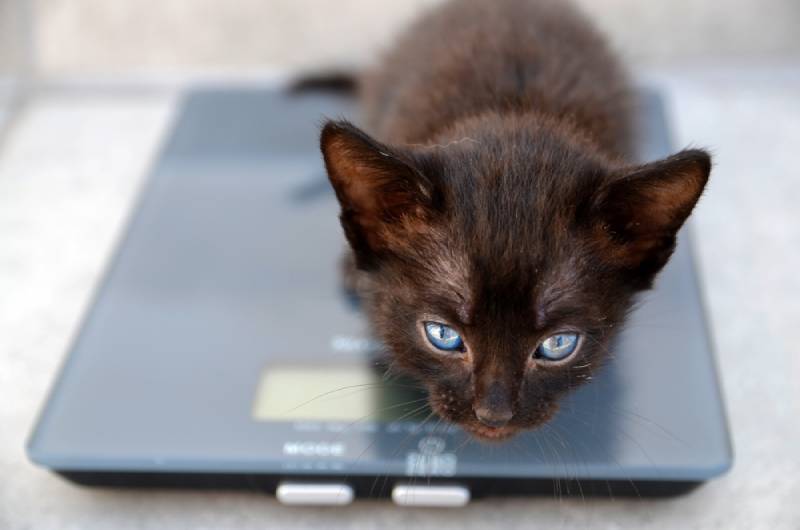
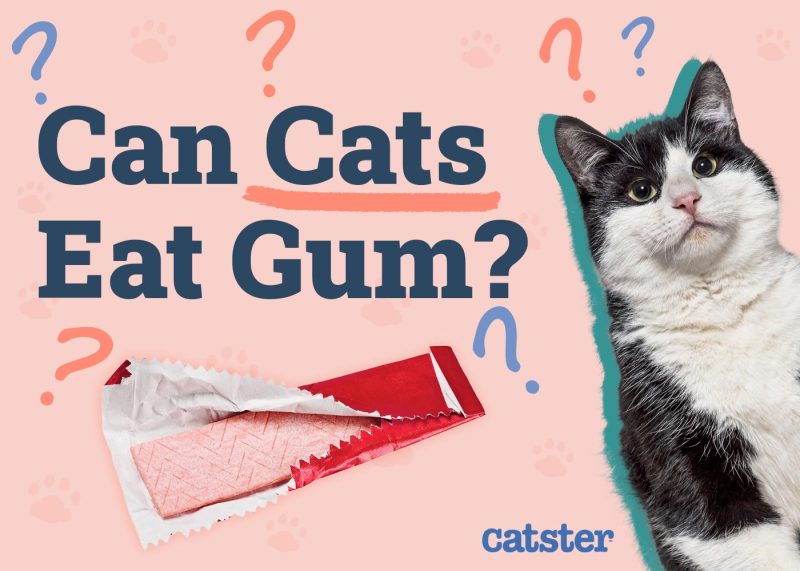
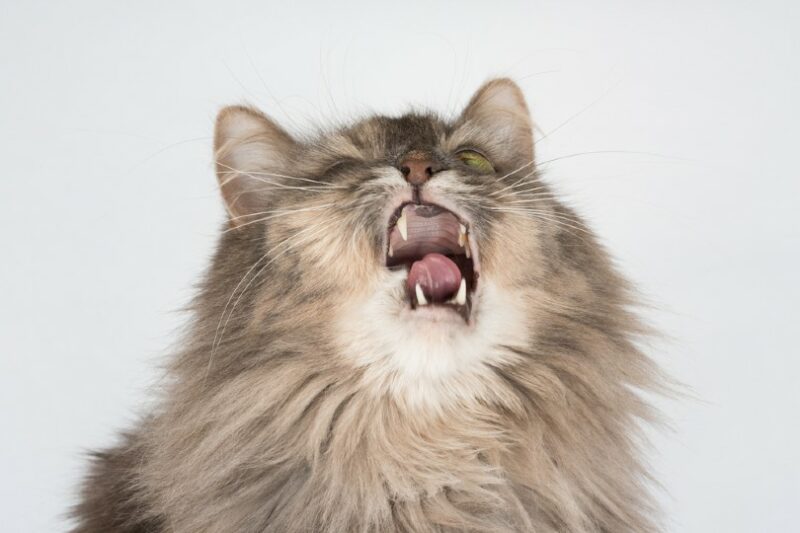

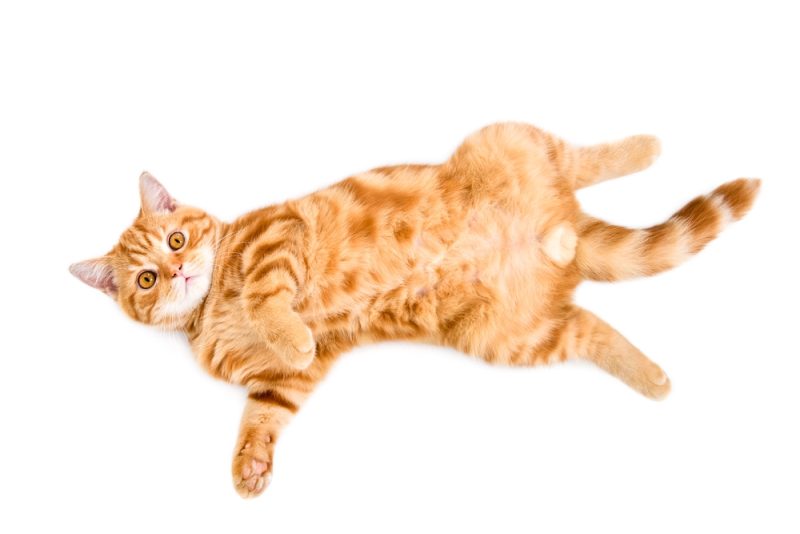
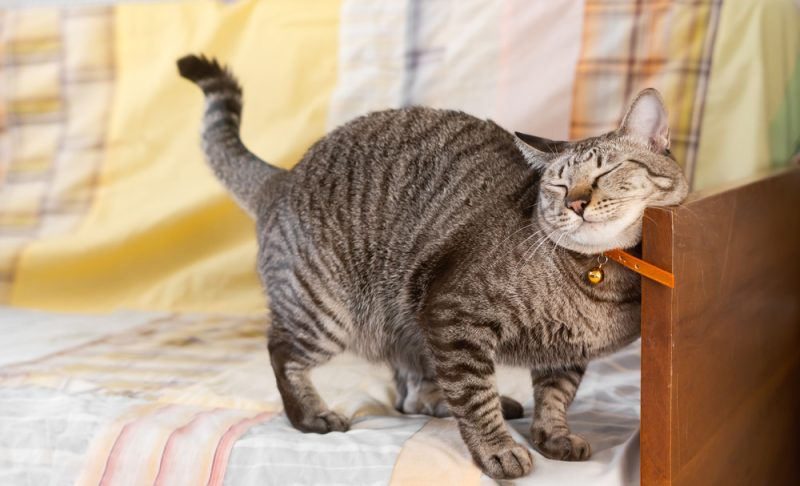
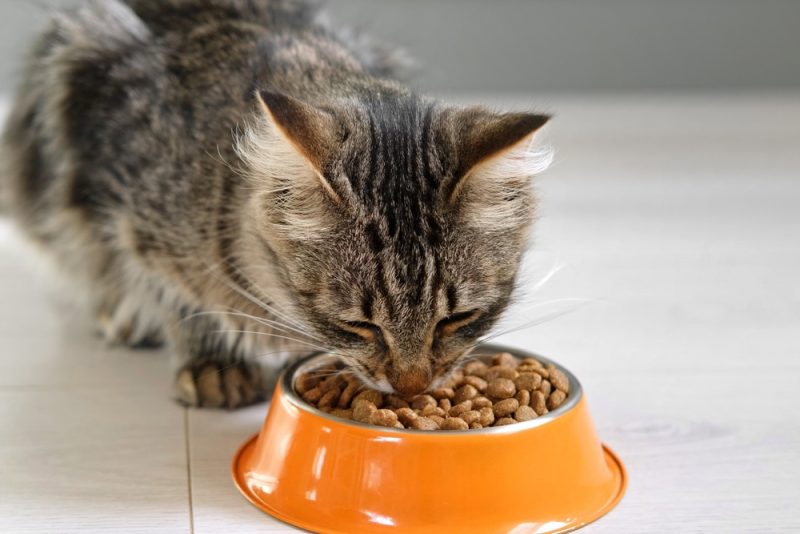
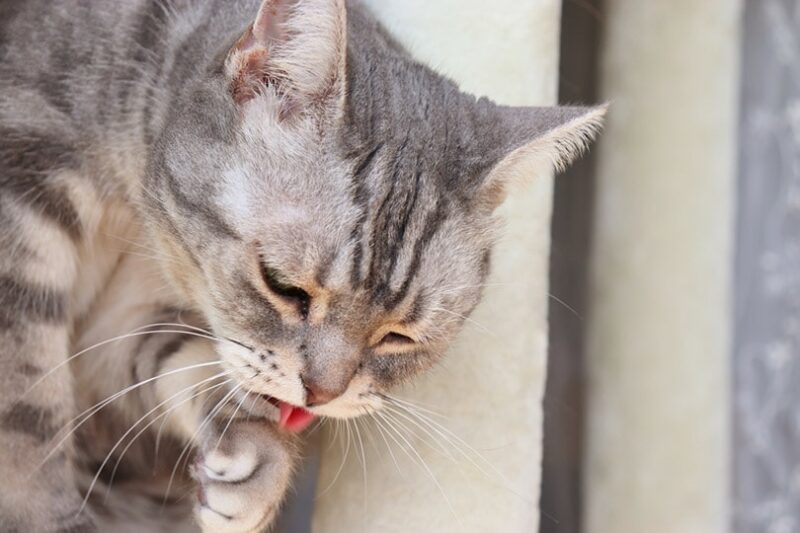



2 Responses
my cat seems to be off her wet food.. she will eat kibble but will not eat canned food…what could the cause be? she sleeps the normal amount and has energy in abundance.. should i be concerned about some internal problems?
Dear Robert,
Thank you for your question and sorry for a bit of a late reply. Since your cat isn't lethargic and seems to be behaving normally, it doesn’t seem that there’s any urgent cause for concern at this time. However, any changes in pets should be closely monitored, as cats are masters at hiding signs of illness. We recommend that you continue to monitor this behavior and try a different wet food option. Try to experiment with different flavors, brands or mix some wet food with dry food and try to figure out what your cat likes the most.
If you would still have concerns for your cat, we would like to suggest booking an appointment with one of our veterinarian experts at www.PangoVet.com. They will be happy to consult with you and give some advice.